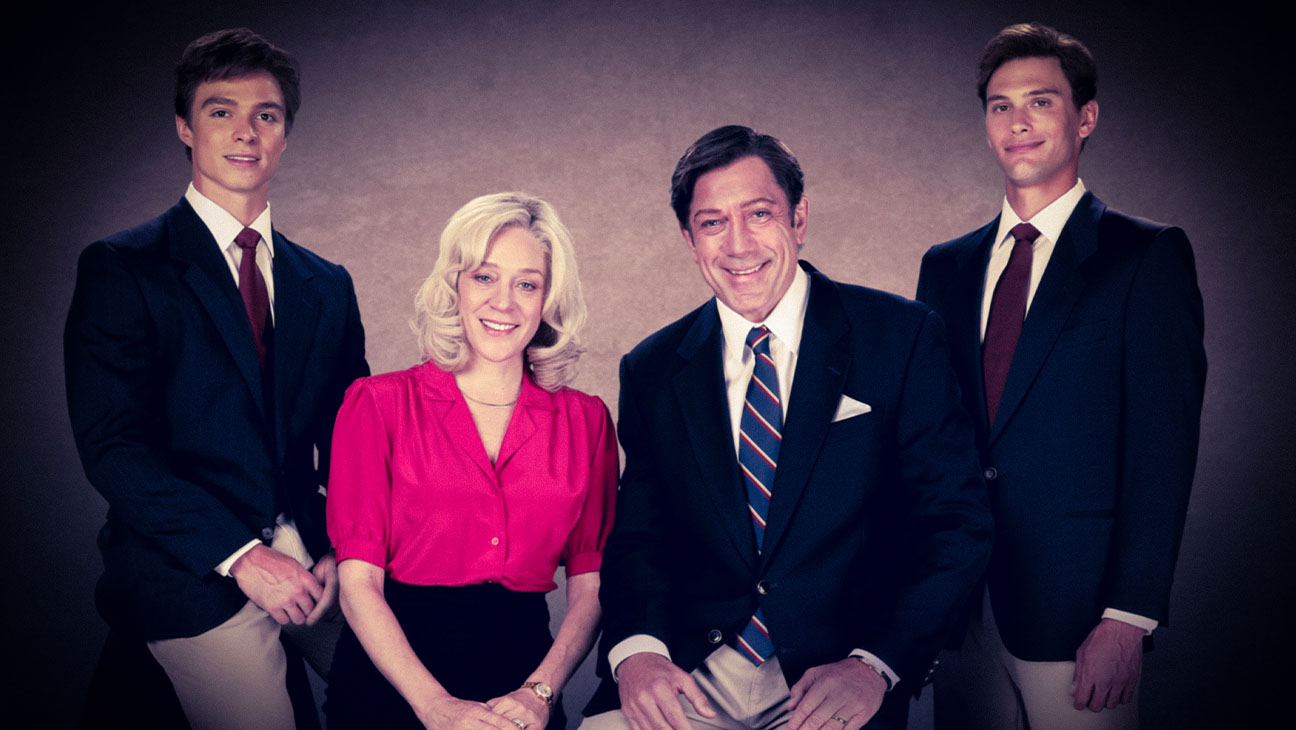Two llamas are bounding up a small hill in Ojai, drawn to the sounds of filmmaker Rebecca Tickell yelling in a high-pitched voice, “Rama! Yoda!” Tickell has in her hand a bucket full of feed, and the two shaggy, snow-colored mammals are ready to eat.
“When the chickens got to an excessive number, they started getting picked off by coyotes,” explains Rebecca’s husband and collaborator, Josh. “These guys, they probably get rid of about 60, 70 percent of the coyotes.” What about the other 30 to 40 percent? “What happens is when you run a farm, you begin the cycle of predator and prey,” Josh says. He adds, “Most people have a bucolic fairy tale [image] of what sustainability in farming looks like. And then you get into it and you realize, ‘Wow, this is really hard.’”
At their all-encompassing home, film studio and farm in Ojai, the Tickells are working to practice what they preach. In 2012, the husband-and-wife environmental documentary directing team behind 2020’s Kiss the Ground and 2023’s Common Ground relocated from Los Angeles to this small valley city, nestled within the agricultural hotbed of Ventura County. The couple originally had a vision of creating a living and learning center where they could make films about environmental solutions, raise a family and live closer to nature. Another impetus to move to a farm: They had learned about a potential tool in the fight against climate change that has informed the way they maintain their unique hybrid space and would end up becoming the topic of their latest films — soil.

Big Picture Ranch
Courtesy of Big Picture Ranch
The Tickells have long focused on making films about the environment. Initially, they specialized in telling nonfiction stories about America’s dependence on oil and advocating to reduce it, starting with 2008’s Fuel, through 2011’s Freedom and then 2012’s The Big Fix. But before they began cultivating crops on this 4.5-acre former avocado orchard over a decade ago (for themselves and friends but also for local restaurants and some organic stores), they learned about biological carbon sequestration, or the process of pulling carbon dioxide from the atmosphere and storing it in plants, the soil and the ocean. “We were like, ‘Oh, wait a minute. We can’t just reduce emissions. We actually have to draw down the carbon and put it someplace,’” says Rebecca.
That led them to drill down on soil in their filmmaking. In 2020, they released the first film in their ongoing soil-focused trilogy, Kiss the Ground, which was narrated by Woody Harrelson and argued for the benefits of regenerative agriculture — an umbrella term that often refers to farming practices that prioritize sustainability as well as soil and human health. That advocacy was expanded in the Laura Dern-narrated Common Ground, which is set to stream digitally in the fourth quarter of this year. The Tickells are now working on a third film, which will take a more global approach to the subject.
These films have put the couple at the forefront of the ascendant regenerative agriculture movement, which has picked up steam and press attention in the past few years. (The movement also has its critics: Some experts say regenerative agriculture’s potential climate-change benefits have been overblown. Of recent Hollywood narratives about restoring soil health, including Kiss the Ground, for instance, University of California Berkeley soils science professor Ronald Amundson wrote in 2022, “soil is certainly not a double silver bullet as some films, and some scientists, propose.”)
In the meantime, the Tickells’ farm has become not only what the couple calls a “regenerative food forest,” but also the site of their full-fledged film studio, Big Picture Ranch. Everything up to the moment of filming — scripting, research, budgeting, pre-interviews — and the bulk of postproduction takes place in a spacious repurposed barn and around the Tickells’ property. The couple has built out the area accordingly: There’s a converted pool house where the team has preproduction meetings; a “tiny house village” of two small studios for visiting collaborators to stay with them as they work; suites in the barn to do a complete 5.1 sound mix and color correction; and Sprinter vans, parked outside when they aren’t on the road filming. The farm is solar-powered (the film studio soon will be, too) and has a well: “We’re responsible for our watershed,” says Josh. “A hundred percent of the water used on the property goes back to the property. No water leaves the property” — except when it’s evaporating.

Sprinter vans at Big Picture Ranch.
Courtesy of Big Picture Ranch

Views of the Topatopa Mountains from Big Picture Ranch.
Courtesy of Big Picture Ranch
With views of the Topatopa Mountains and a plethora of food sprouting all around — mulberries, kumquats, passionfruit, peaches, strawberries and more in addition to the former monocrop of avocados — the ranch has also provided a bucolic setting for on-camera interviews. Those have included talks with Lost actor Ian Somerhalder for Kiss the Ground and Mr. & Mrs. Smith’s Donald Glover for Common Ground. (Celebrity activist appearances are a hallmark of the Tickells’ films.) The property even has a small water tower with the Big Picture Ranch logo emblazoned on it, framed on a recent visit in May by bursting bougainvillea and firestick plants.

The interior of the Big Picture Ranch barn.
Courtesy of Big Picture Ranch
The Edenic setting is “decisive” for the work, says Josh. “If it gets too frustrating or too daunting or too difficult, people just walk outside. You’ll see the editors taking a walk, looking at a tree or just sitting under the avocados or next to the llamas, having a bite to eat.” He adds, “If you’re going to tell stories about regulating the planet, it’s good to have that ability yourself.” The Tickells have incorporated tenets of the regenerative agriculture movement into the farm: growing a diversity of plants rather than just one or a few, keeping cover crops of California native grasses in their backyard and incorporating animals into the landscape. They say they’re still learning and working on improving their little ecosystem.
The couple is hoping that the films made here will help encourage others to adopt these regenerative practices. They undertake impact campaigns for their films themselves, striking deals with distributors where they retain rights for a 45-minute cut that they can offer for free to schools, educators and nonprofits. During the COVID-19-era release of Kiss the Ground, they provided blow-up screens for free to any farmer that wanted to host outdoor screenings, and they say thousands were held.

The water tower at Big Picture Ranch.
Courtesy of Big Picture Ranch
These efforts are all in the service of reaching some ambitious goals. The Tickells cite data from North Dakota rancher and regenerative agriculture advocate Gabe Brown revealing that in 2020, the year Kiss the Ground was released, around 250,000 acres were in the process of being regeneratively farmed in the U.S., and by the time Common Ground premiered in 2023, that figure had risen to 34 million acres. The Tickells want to help contribute to 100 million acres — or about 10 percent of U.S. agriculture — being at least in the process of being regeneratively farmed by the time the third film in their trilogy comes out, around 2027. “The eventual goal is a billion acres globally — that would be 10 percent of global land that human beings manage,” says Josh.
It’s a tall order, but the filmmakers are pushing ahead, currently with the intention of escalating their output of films. The Tickells have just struck a three-movie deal with a studio that they won’t name yet. They are also planning on upgrading their space and “exponentially increas[ing] our volume of production,” says Rebecca, with 22 projects outside of the two films they’re actively working on now — the third in the soil trilogy and a film on pollinators — and new hires in the works.
And though they won’t say much else specifically yet about their expansion, “We have a vision for being a very large presence in Ojai,” Rebecca explains. “We’re turning into a climate studio.”
This story first appeared in the June 2024 Sustainability issue of The Hollywood Reporter magazine. Click here to see the rest of the issue.



